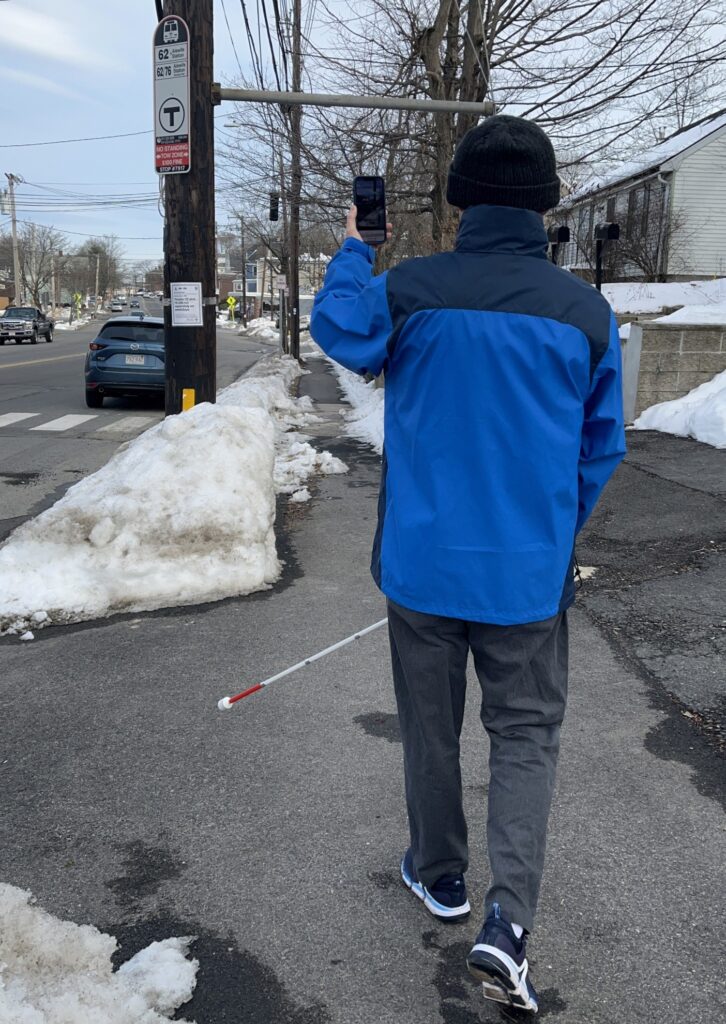If you are a bus rider, you have probably occasionally missed your bus because you were standing just a few steps away from the bus stop, the bus approached, the driver thought you weren’t going to get on, and they drove off! (it’s happened to me for sure!) For the visually impaired, this is a much bigger problem (“the last 10 meter problem”) because GPS apps can bring them no closer than 10 meters from their target which may not be enough. Someone could possibly feel a pole with their cane and think it’s a bus stop, but it actually might not be. Identifying physical bus stops is not an easy task for people with visual impairment.
To help overcome this issue, a team of researchers at Schepens Eye Research Institute of Mass Eye and Ear have built an app that looks for bus stop signs through the phone camera. The user has to hold their phone in an upright position and point it generally in the direction of the bus stop. The app starts emitting sonar sounds indicating it is looking for the bus stop sign. Once identified, the sound’s pitch keeps going higher the closer the user gets to the sign. This free app, called All Aboard, uses artificial intelligence to recognize bus stop sign in multiple cities. Between 5,000 and 10,000 bus stop sign images were used for a given city to help the AI model identify signage patterns for bus stops.
Since its launch in December 2021, the app has been used by more than 130 users in over 1500 instances in the US, Canada, Germany and the UK. In a pilot test before the launch, the app developers tried it against Google Maps with 20 bus stops in the Los Angeles area (10 in downtown amidst high rises and 10 in suburbs) and found that Google Maps’ successful navigation rate with Google Maps was 60% (failed to localize 7 stops in downtown and 1 in suburbs) whereas the All Aboard app’s success rate was 95%. (failed to identify one downtown stop)
A combination of the Soundscape app and All Aboard can really enhance a blind user’s experience of walking to a bus stop to catch their bus while being aware of their surroundings.
At the time of writing this post, this app works with the following transit service: California AC Transit, Chicago CTA,, Germany Bus and Tram, London bus services, Los Angeles Metro, MBTA Boston, New York MTA, Seattle Metro, Toronto TTC, and Washington DC Metrobus. Because this app is built using artificial intelligence and generally understands what bus stop signs look like, it might be worth a shot to just try it in your city (if it’s not in the list above) and see if it works!
Watch the video below to see how All Aboard works.
Source: Microsoft

